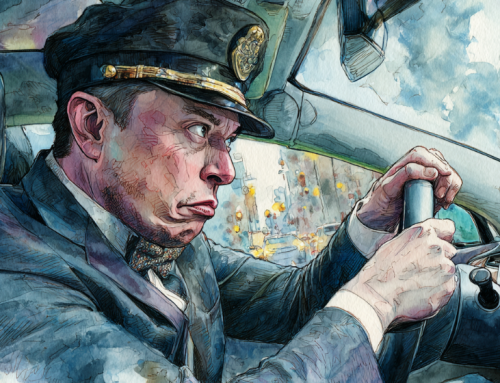
Man Among the Machines: How Connectivity, Algorithms Redefine Selfhood
We lead lives increasingly inundated and assisted by technology. From centuries-old tech, such as eyeglasses and the printing press to today’s deluge of the web, computers, smartphones, wearables, VA, AR, and AI, technological progress across human history has enhanced our senses, increased our knowledge, and allowed us to better communicate with one another.
But in a world where we often take technology for granted and are so rarely dazzled by the strangeness of our times, we may miss some of the subtle changes that technology has wielded not only on our habits and worldviews, but perhaps even the very manner in which we perceive existence.
This is the radical argument proposed in a recent piece by Mark Rolston on Fast Company’s design and tech website proposing the idea of the “Meta-Me”–in other words, a new kind of Self that not only includes the boring old organic “me” locked away betwixt our ears, but extends as well throughout our digital presence in all of our data and devices, including the vast–and usually private–algorithms that increasingly influence our lives.
Rolston compares the rise of the nascent Meta Me to the consciousness of humans from thousands of years ago who first began–as one philosopher theorizes– to develop the rich inner consciousness we experience as “reality” today:
“In 1976, philosopher Julian Jaynes issued the provocative theory that recent ancestors lacked self-awareness. Instead, they mistook their inner voices for outside sources–the voice of God, say, or the ghosts of their ancestors. Jaynes called his theory “bicameralism” […] and, in his telling, it persisted in early humans until about 3,000 years ago.”
Arguing that “we are in a similar pre-conscious state now,” Rolston advances the idea of our imminent hyper-connected Meta Me with plenty of examples of how much of our decision-making we already gladly outsource to connected devices –everything from navigation to control of our home thermostats to dinner recommendations. In furtherance of this argument, all one has to do is look around us at the world we live in and see that, as one recent Atlantic article put it, “computers already are predominant, human life already takes place mostly within them, and people are satisfied with the results.”

Is our generation booting a new kind of “Meta Me” amidst the machines? Image via The Atlantic.
Take as an example the device you’re reading this on: it not only connects you directly or indirectly to billions of other web-enabled machines in the world along with the entirety of human digitized knowledge, but also likely serves as everything from a calendar to a concierge. In a way, we’re already using our devices as externalized “brains,” and who wouldn’t? Storing a hundred phone numbers, a thousand books, or your to-do list on the cloud or a hard drive is vastly easy than committing the contents to memory or paper. We’ve already each become to some extent a Meta Me, with our memories, experiences and interactions largely taking place in silicon or through fiber optic cables and cellular networks.
And furthermore, it’s a two-way street. Just as we willingly share data on our devices or with the chattering digital commons of the social networks, so do the companies and providers we rely on learn from us. The digital leavings and litterings of the ever-more public Meta Me–including out metadata as well as more obvious and visible content–allow for companies to learn from us not one at a time, but one billion at a time.
Given this proliferation of devices and data we gladly rely on, Rolston sees this growing facet of the digital self as a particularly worrisome development for the agency of individuals:
“Let’s say your Meta Me arranges for a self-driving car to pick you up from work and take you home. That car might be sponsored by a company that wants to drive you down a street filled with billboards and storefronts advertising their brands, rather than taking you on the fastest and most efficient way home. […] The manipulative potential of AI became sharply clear after the 2016 U.S. election, when armies of bots were used to spread viral political ads. Computer algorithms analyzed social media behavior to develop predictions about people, and then customize ads in real time based on the response. “
As our selves are becoming increasingly enmeshed with the devices we use and our lives and habits increasingly become increasingly influenced by–and in turn influencing–the dizzying ether of our networks, devices and data, the sphere of the Meta Me will increase and the power and agency of yesteryear’s legacy selves may very well be imperiled if we don’t collectively begin to decide now how to best proceed into this unprecedented new age.
Or, as Rolston succinctly sums it up, “to ensure the Meta Me lives harmoniously in the world, we must adopt new social constructs” and act together to “pursue the same legal protections that were hard-won over our corporeal selves.”







Leave A Comment